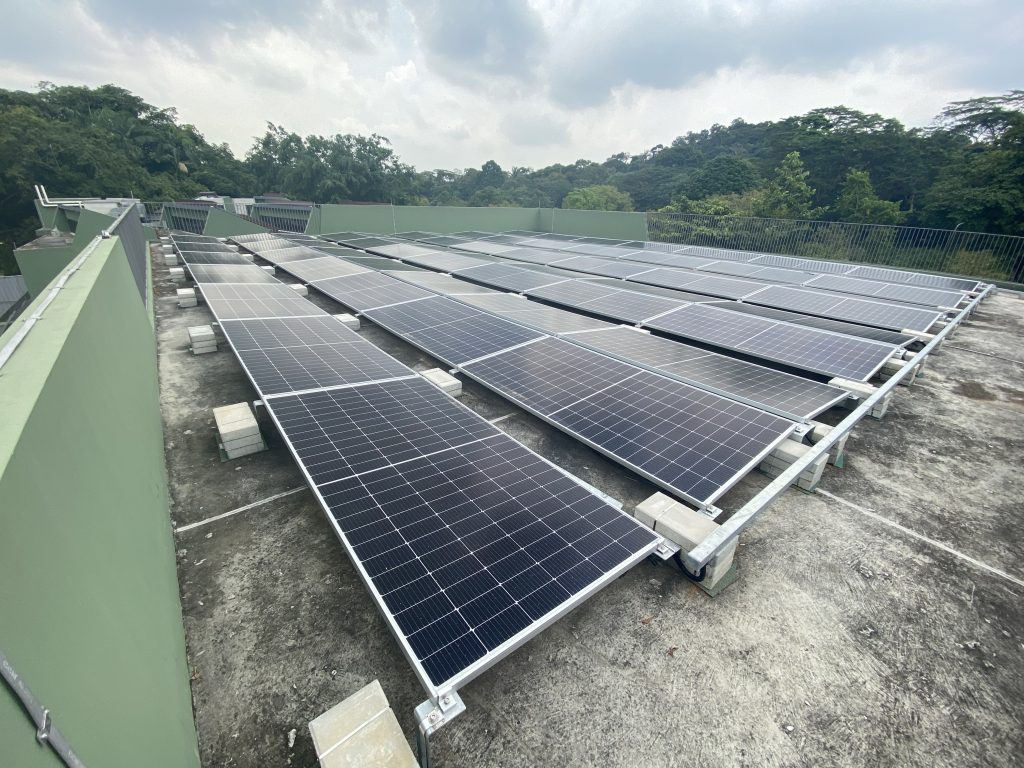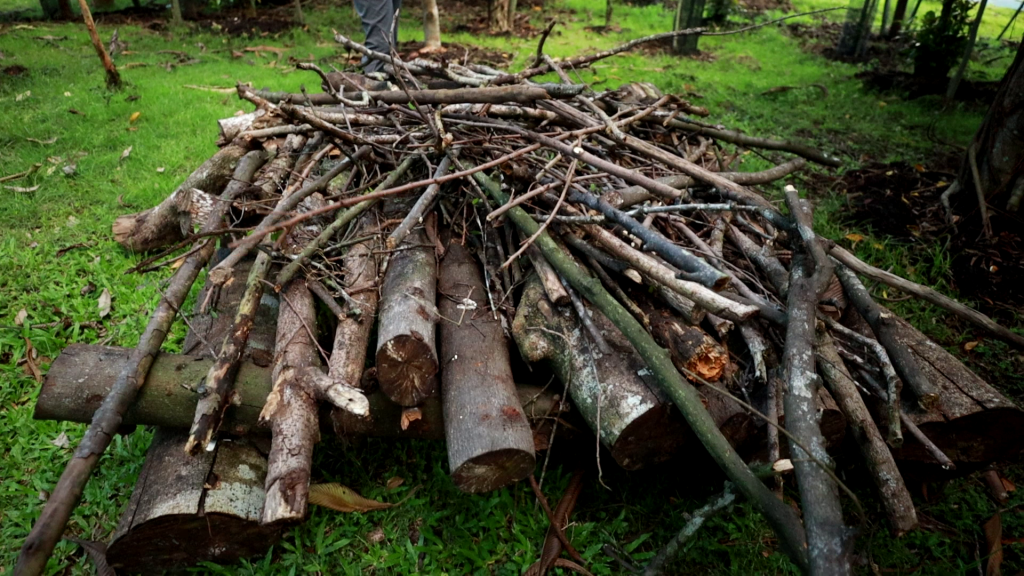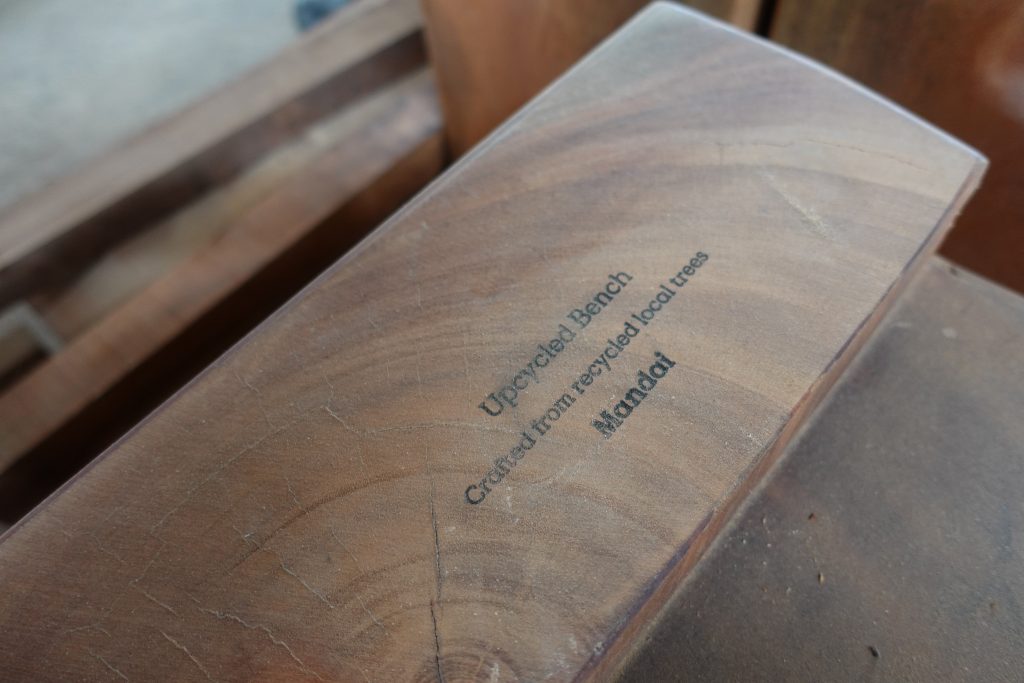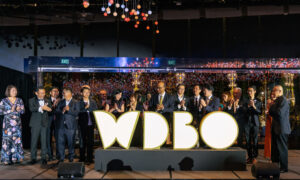
Solar panels installed above the animal quarantine building at Mandai. Photo credit: Mandai Park Holdings
Mandai Park Holdings (MPH) has announced its commitment to be carbon neutral by 2024, setting up the integrated nature and wildlife destination it stewards to be the first precinct in Singapore to be carbon neutral.
This ambition will be realised through a comprehensive Mandai Environmental Sustainability Strategy and is in line with the Singapore Green Plan 2030 – a whole-of-nation movement to transform Singapore into a global city of sustainability over the next decade.
Mr Mike Barclay, Group CEO of Mandai Park Holdings (MPH), said: “As an organisation that is deeply involved in wildlife conservation efforts, we see first-hand how human-induced climate change is directly contributing to biodiversity loss. Hence, we have set ourselves an aggressive target for achieving carbon neutrality, which will pave the way for us to reach net zero sooner.
“It is our responsibility to ensure we optimise our operations, in line with our commitment to adopt and showcase sustainable best practices. Our sustainability strategy focuses on measures to reduce our consumption of energy and water, maximising opportunities for generating renewable energy, and exploring how best to reduce, recycle or upcycle the waste we produce. We also seek to drive behavioural change by integrating messaging on living sustainably into our education and outreach programmes.”
Roadmap to achieving carbon neutrality
A five-year roadmap was established in 2018 as part of MPH’s carbon strategy and employs the three-pronged approach of “avoid, reduce, compensate”. The approach forms the backbone of the suite of strategies which focus on: developing a carbon accounting framework; reducing absolute emissions by optimising operations and upgrading infrastructure; and maximising renewable resources while investing in nature-based solutions for carbon reduction.

Felled trees are placed as a simple pile of logs on the Mandai Wildlife Bridge. Log piles like this act as stepping stones and also potentially help provide refuge for small mammals, reptiles and amphibians that use the bridge. Photo credit: Mandai Park Holdings
MPH’s robust carbon accounting framework incorporates a quarterly review of its carbon inventory and footprint. By identifying and focusing on hotspots within its operations, MPH can set reasonable targets as it works towards becoming a carbon neutral precinct.
Improving energy efficiency and diversifying renewable energy sources as a priority
With electricity use accounting for more than half of MPH’s carbon emissions profile, the organisation has also pledged to attain 100 per cent of its energy from renewable sources by 2030. In addition, MPH is developing energy-efficient operations and processes to realise a one per cent year-on-year reduction in energy use from 2021 for its existing parks.
Energy efficient technologies and infrastructure are also being adopted and integrated within its new developments under the Mandai Rejuvenation Project to achieve a site-wide target of more than 20 per cent reduction in energy consumption.
While the carbon accounting framework was being developed, MPH concurrently embarked on its journey to reduce indirect emissions. Energy efficiency measures are being implemented following an energy audit that was conducted on existing operations in 2018. This includes the installation of an energy monitoring system, control, and motion sensors in its zoological parks, and the upgrading of aging infrastructure such as the pump systems at River Safari’s manatee exhibit and Singapore Zoo’s Primate Kingdom to more energy-efficient alternatives.
These initiatives are expected to save about 712 MWh of energy per year, which is equivalent to the energy needed to power about 165 four-room HDB flats annually. As infrastructure upgrading continues, plans to integrate and maximise renewable solar energy throughout the Mandai precinct have also commenced, setting the stage for MPH’s pivot towards greener sources of energy.

A work-in-progress wooden bench made from recycled local trees. These upcycled benches will be placed around the precinct. Photo credit: Mandai Park Holdings
MPH will implement on-site solar panels at all available and permissible rooftops across its new and existing parks, while exploring how to tap into the electricity generated by larger scale solar farms at off-site locations. The installation of solar panels will be done in phases, starting with the roof of its newly constructed animal quarantine building this year. Consisting of 77 solar panel modules, the system will generate about 50 megawatt-hour of energy per year. The next installation will take place at the existing multi-storey carpark in October and will see 694 solar panel modules generate about 450 megawatt-hour of energy per year when operational.
Using nature-based solutions to offset carbon emissions
As part of the Mandai Rejuvenation Project, MPH has prioritised the preservation and protection of local flora. Wherever possible, trees, saplings and shrubs are retained or transplanted. When trees have to be felled as part of the development work, suitable materials are repurposed for habitat enhancement, with decomposing logs and root balls being salvaged for use on the Mandai Wildlife Bridge as well as in the project’s buffer zones. Felled tree materials are also recycled for use in animal exhibits, for landscaping and for making furniture and retail items.
Through the strategy of retaining, repurposing, and recycling, MPH minimises the emission of carbon that would otherwise have occurred when trees are cleared and disposed of in a typical development project. Aside from the retained trees, an additional 15,000 new trees will be planted across the project.
To offset last mile emissions that cannot be reduced completely, MPH is working closely with Mandai Nature to explore opportunities to generate carbon credits from the nature conservation projects it supports in the region. Mandai Nature is a Singapore-based NGO and MPH’s conservation arm, advancing efforts for nature conservation in Asia.
Benchmarked against rigorous industry standards, the Mandai Environmental Sustainability Strategy will be driven by four strategic thrusts: resource optimisation; biodiversity protection and conservation; integration with surroundings; and sustainability advocacy. More details on the Mandai Environmental Sustainability Strategy will be unveiled later this year.












